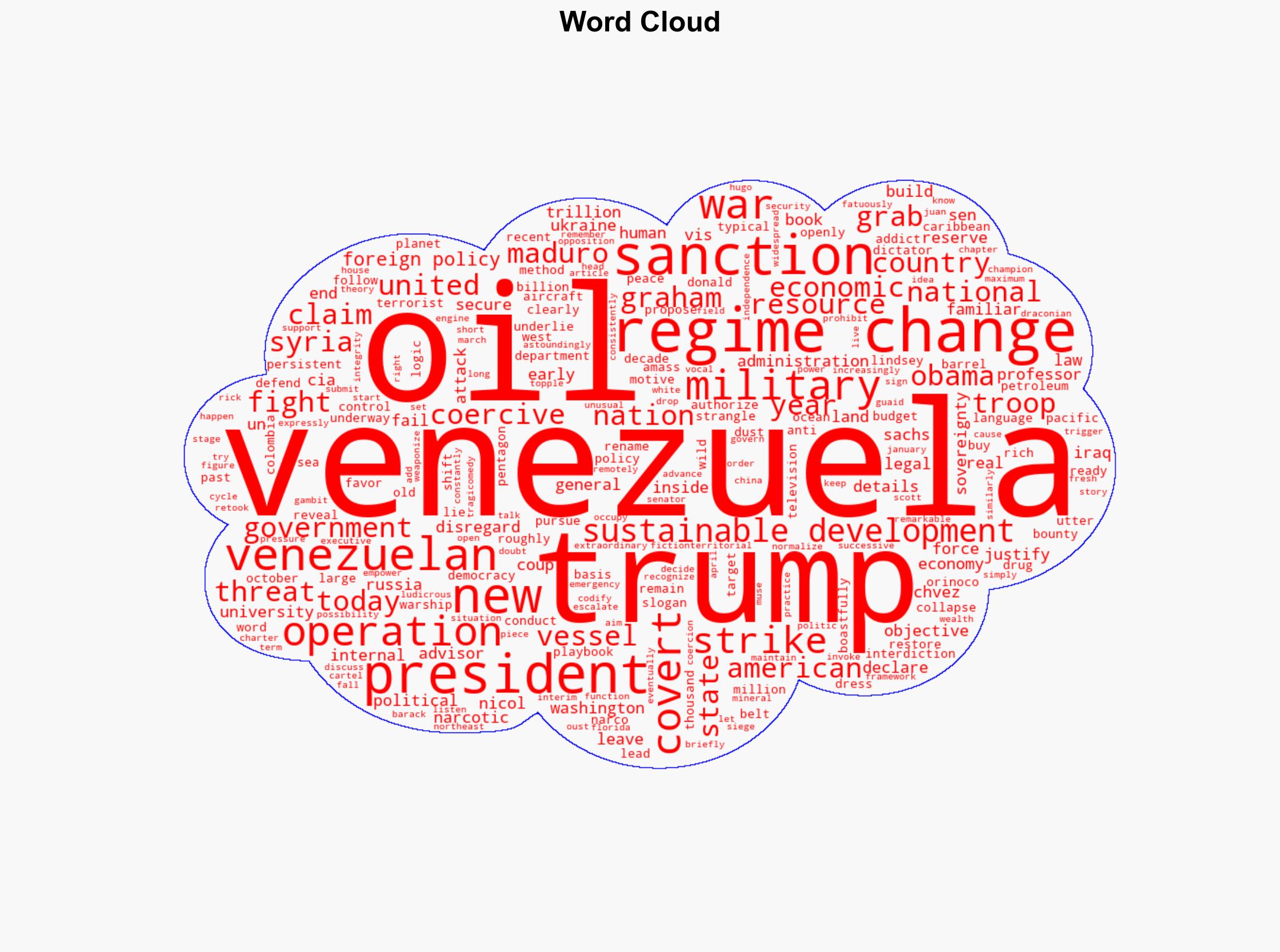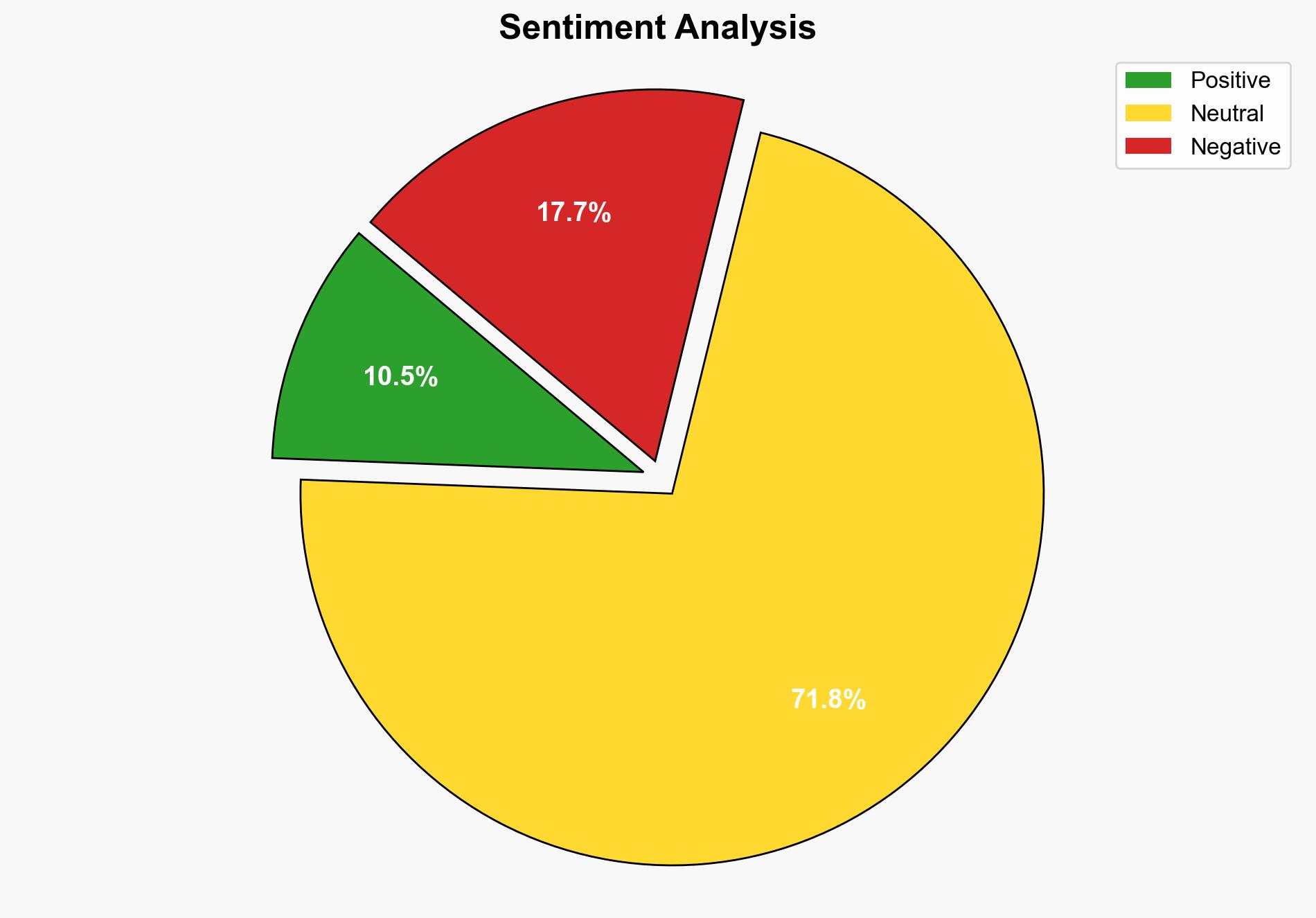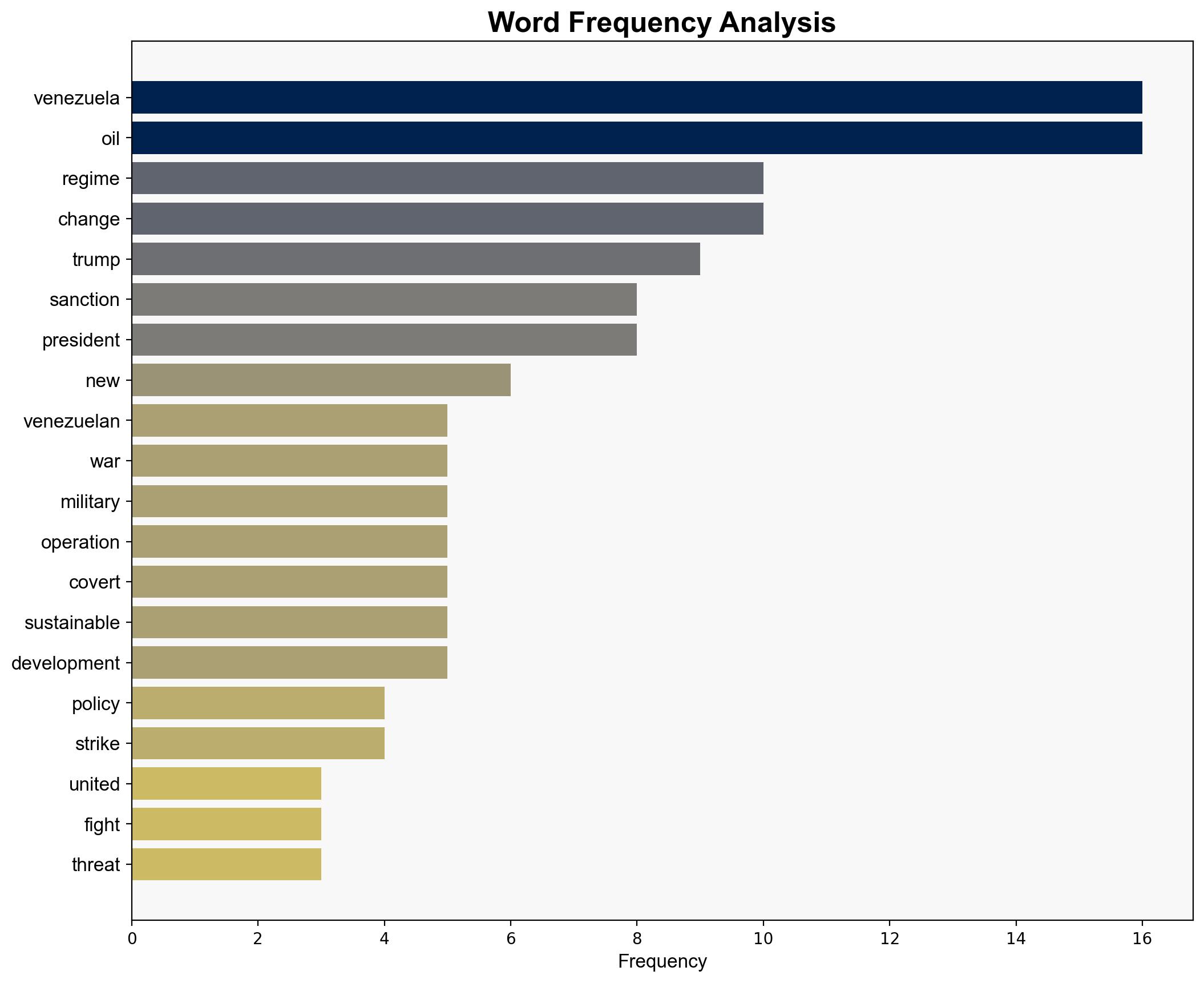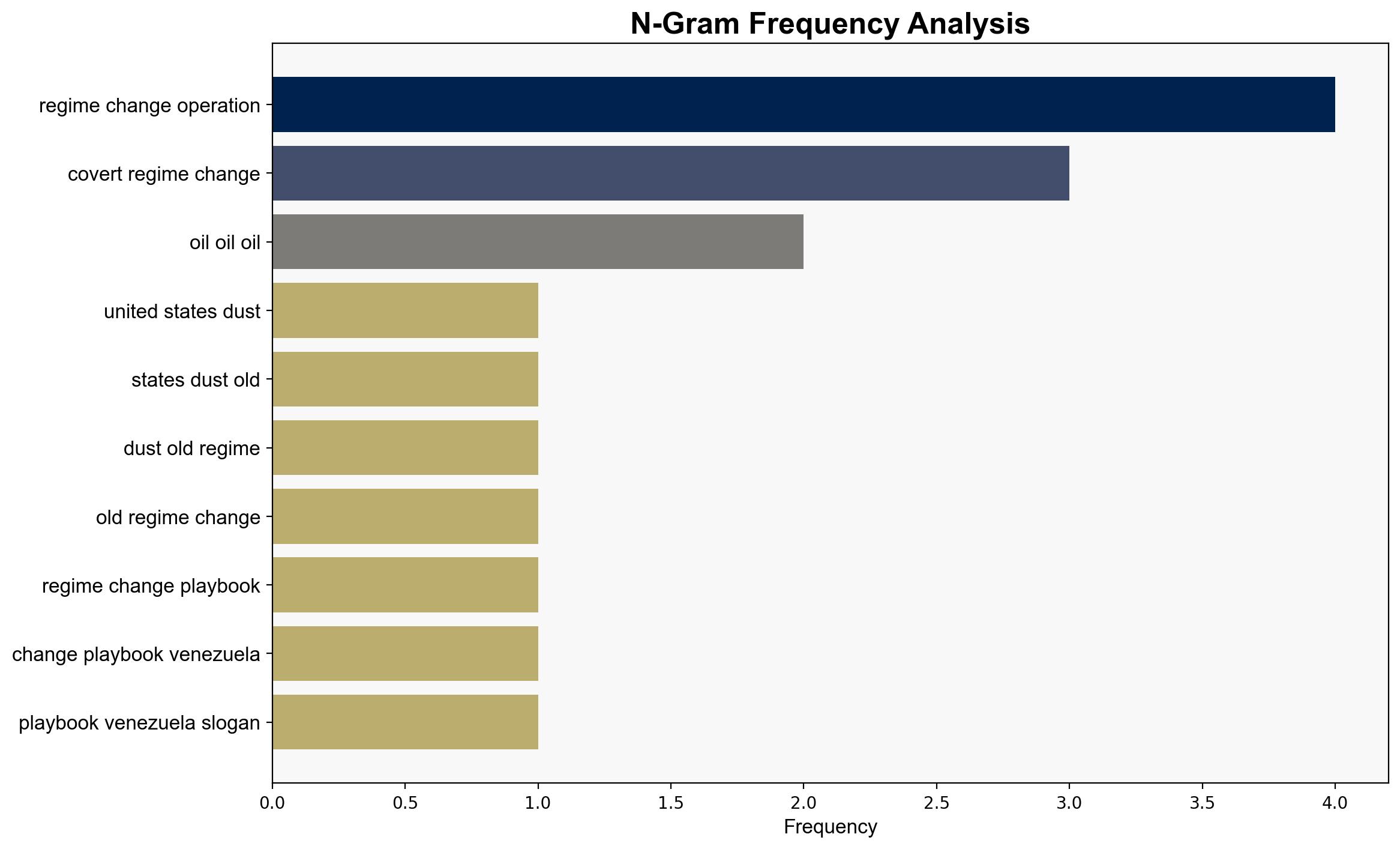Venezuelas Oil US-Led Regime Change and Americas Gangster Politics – Antiwar.com
Published on: 2025-11-06
Intelligence Report: Venezuelas Oil US-Led Regime Change and Americas Gangster Politics – Antiwar.com
1. BLUF (Bottom Line Up Front)
The most supported hypothesis suggests that the United States’ actions in Venezuela are primarily driven by strategic interests in securing oil resources, under the guise of restoring democracy and combating narcotics. Confidence in this assessment is moderate due to the complexity and potential biases in the source material. Recommended action includes monitoring geopolitical shifts and preparing for potential economic and diplomatic repercussions.
2. Competing Hypotheses
1. **Hypothesis A**: The United States is primarily motivated by the desire to control Venezuela’s vast oil reserves, using regime change as a pretext to secure these resources.
2. **Hypothesis B**: The United States’ actions are genuinely aimed at restoring democracy and combating narcotics trafficking in Venezuela, with oil interests being secondary.
Using the Analysis of Competing Hypotheses (ACH) 2.0, Hypothesis A is better supported by the evidence, particularly statements from U.S. officials and historical patterns of intervention linked to resource acquisition.
3. Key Assumptions and Red Flags
– **Assumptions**: Hypothesis A assumes that U.S. foreign policy is predominantly driven by economic interests, particularly in oil. Hypothesis B assumes a genuine commitment to democratic principles and anti-narcotics efforts.
– **Red Flags**: The source’s potential bias against U.S. foreign policy could skew interpretations. Inconsistent data on the actual impact of U.S. sanctions and military presence in the region may obscure true intentions.
4. Implications and Strategic Risks
– **Economic Risks**: Escalation could disrupt global oil markets, affecting prices and economic stability.
– **Geopolitical Risks**: Increased tensions with Russia and China, who have vested interests in Venezuela, could lead to broader regional instability.
– **Psychological Risks**: Perceptions of U.S. imperialism could fuel anti-American sentiment, potentially leading to increased recruitment for anti-U.S. groups.
5. Recommendations and Outlook
- **Mitigation**: Engage in diplomatic dialogues with key stakeholders, including Russia and China, to reduce tensions.
- **Exploitation**: Leverage international forums to promote transparency in Venezuela’s governance and resource management.
- **Scenario Projections**:
– **Best Case**: Diplomatic resolution leads to stabilized governance in Venezuela and secure oil markets.
– **Worst Case**: Military confrontation escalates, leading to regional conflict and economic disruption.
– **Most Likely**: Continued sanctions and diplomatic pressure without direct military intervention.
6. Key Individuals and Entities
– **Donald Trump**: Former U.S. President, vocal about securing oil interests.
– **Nicolás Maduro**: Venezuelan President, target of U.S. regime change efforts.
– **Juan Guaidó**: Opposition figure in Venezuela, recognized by the U.S. as interim president.
– **Lindsey Graham**: U.S. Senator, advocate for military intervention.
– **Rick Scott**: U.S. Senator, involved in discussions about U.S. policy towards Venezuela.
7. Thematic Tags
national security threats, geopolitical strategy, resource acquisition, regime change





